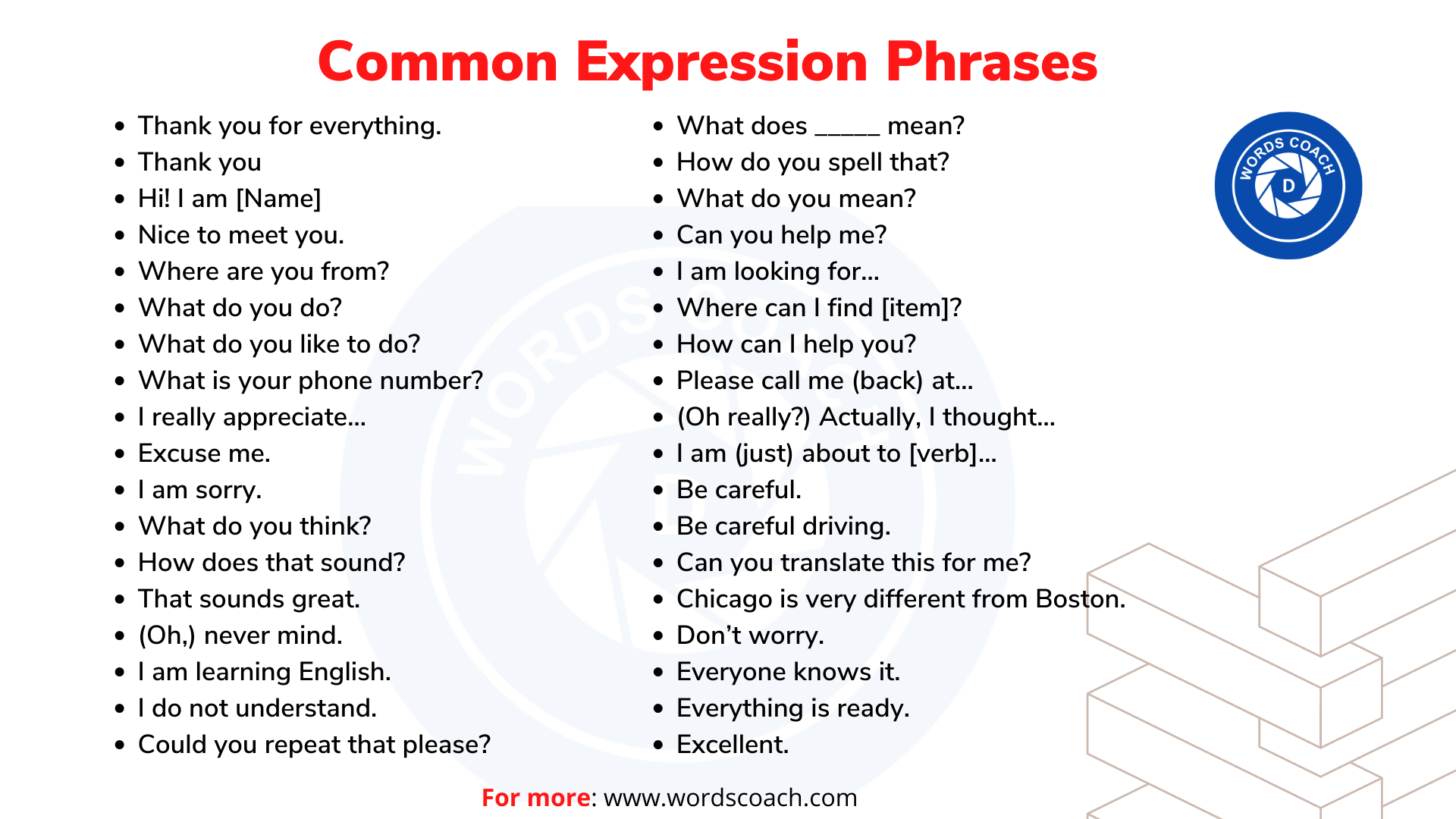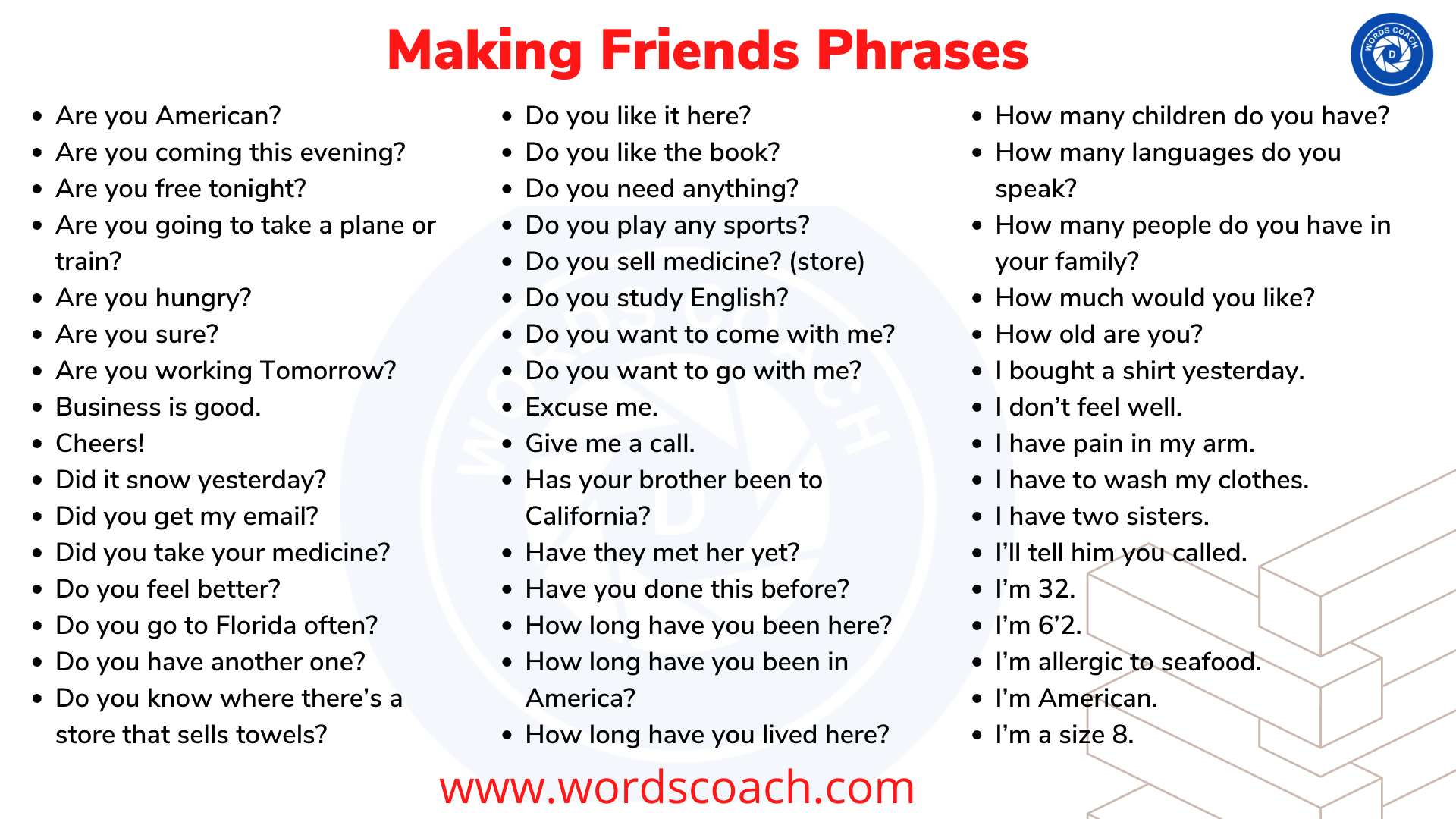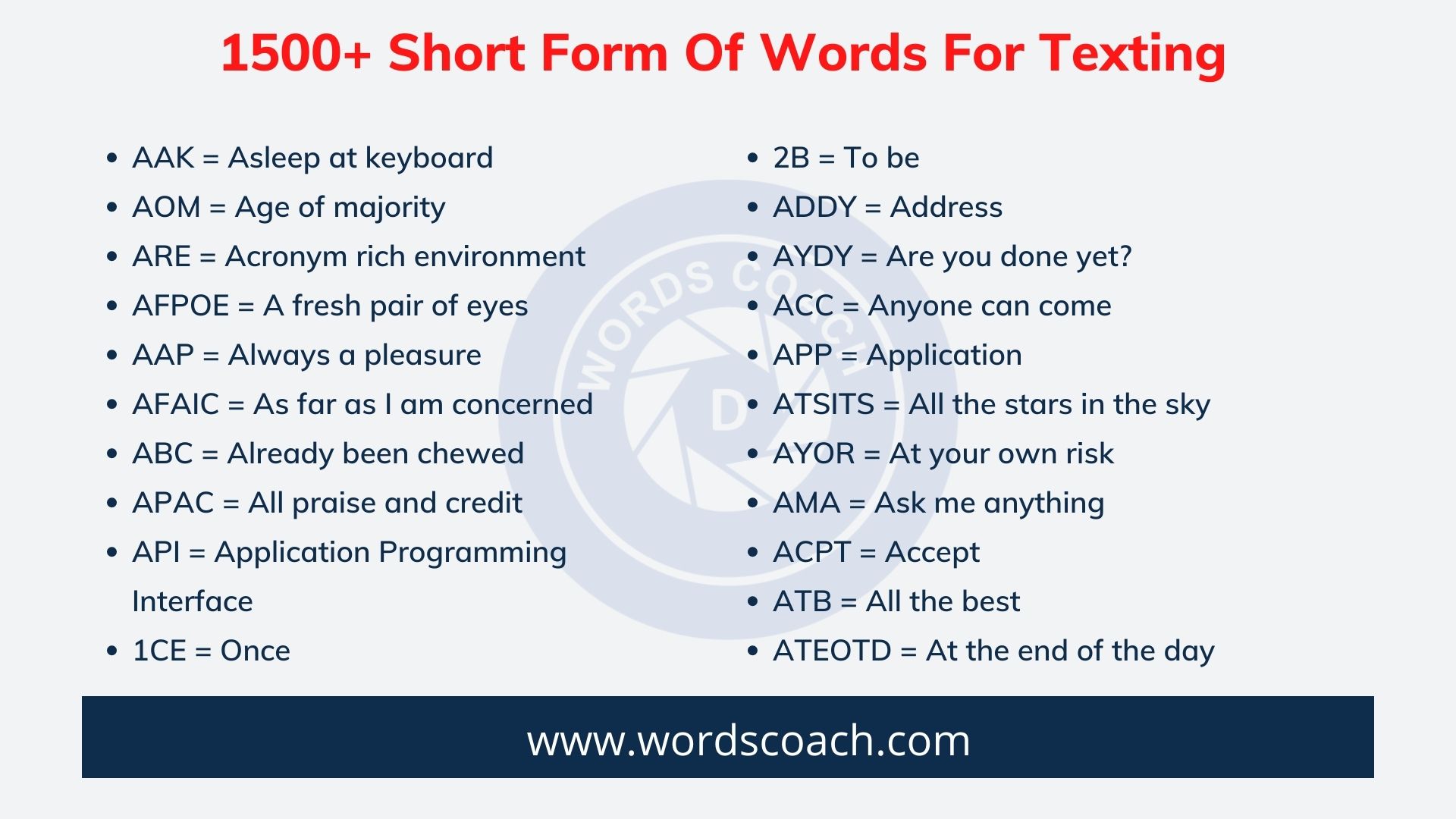List of different ways to say YOU’RE WELCOME. Learn these YOU’RE WELCOME to enhance your vocabulary and improve your communication skill in English.
Different Ways to Say YOU’RE WELCOME
There are many ways to say YOU’RE WELCOME in English, learning the subtle nuances can be tricky. Here is a comprehensive guide to saying YOU’RE WELCOME in English.
Informal ways
- Not a problem!
- No worries!
- Always a pleasure, never a chore
- Don’t mention it.
- It’s no trouble at all.
- Any time.
- It was nothing.
- You got it!
- Sure!
Formal ways
- It’s a pleasure.
- It’s always my pleasure.
- You’re very welcome
- I am happy to help.
- Not at all.
Here are several alternative ways to say “you’re welcome,” along with tips on when and how to use them.
1. My Pleasure
- Usage: Formal and genuine.
- Example: “Thank you for helping with the project.” “My pleasure.”
This response conveys that you were happy to help and that it wasn’t a burden.
2. No Problem
- Usage: Informal and relaxed.
- Example: “Thanks for the lift.” “No problem.”
This phrase suggests that the action was easy and not a bother at all.
3. Anytime
- Usage: Informal, friendly, and supportive.
- Example: “Thanks for covering my shift.” “Anytime.”
It indicates that you’re always ready to help, creating a sense of reliability.
4. Don’t Mention It
- Usage: Casual and often used among friends.
- Example: “Thanks for lending me your notes.” “Don’t mention it.”
This phrase downplays the significance of the favor, suggesting it was not a big deal.
5. Happy to Help
- Usage: Friendly and genuine.
- Example: “Thanks for your advice.” “Happy to help.”
It conveys a sincere willingness to assist and support.
6. Sure Thing
- Usage: Informal and enthusiastic.
- Example: “Thanks for picking up the tab.” “Sure thing.”
This response shows readiness and eagerness to be of service.
7. Of Course
- Usage: Informal and affirming.
- Example: “Thanks for coming to the rescue.” “Of course.”
It implies that helping was a given and you were naturally inclined to do so.
8. No Worries
- Usage: Informal and laid-back.
- Example: “Thanks for the ride.” “No worries.”
This phrase reassures the person that helping was no inconvenience.
9. Glad to Assist
- Usage: Formal and professional.
- Example: “Thank you for your support.” “Glad to assist.”
Ideal for workplace settings, it conveys professionalism and readiness to help.
10. You Got It
- Usage: Informal and confident.
- Example: “Thanks for helping with the presentation.” “You got it.”
Saying “you’re welcome” is a simple yet powerful way to acknowledge someone’s gratitude. By varying your responses, you can add warmth, friendliness, and professionalism to your interactions. Try incorporating these alternatives into your daily conversations and see how they enhance your communication.








